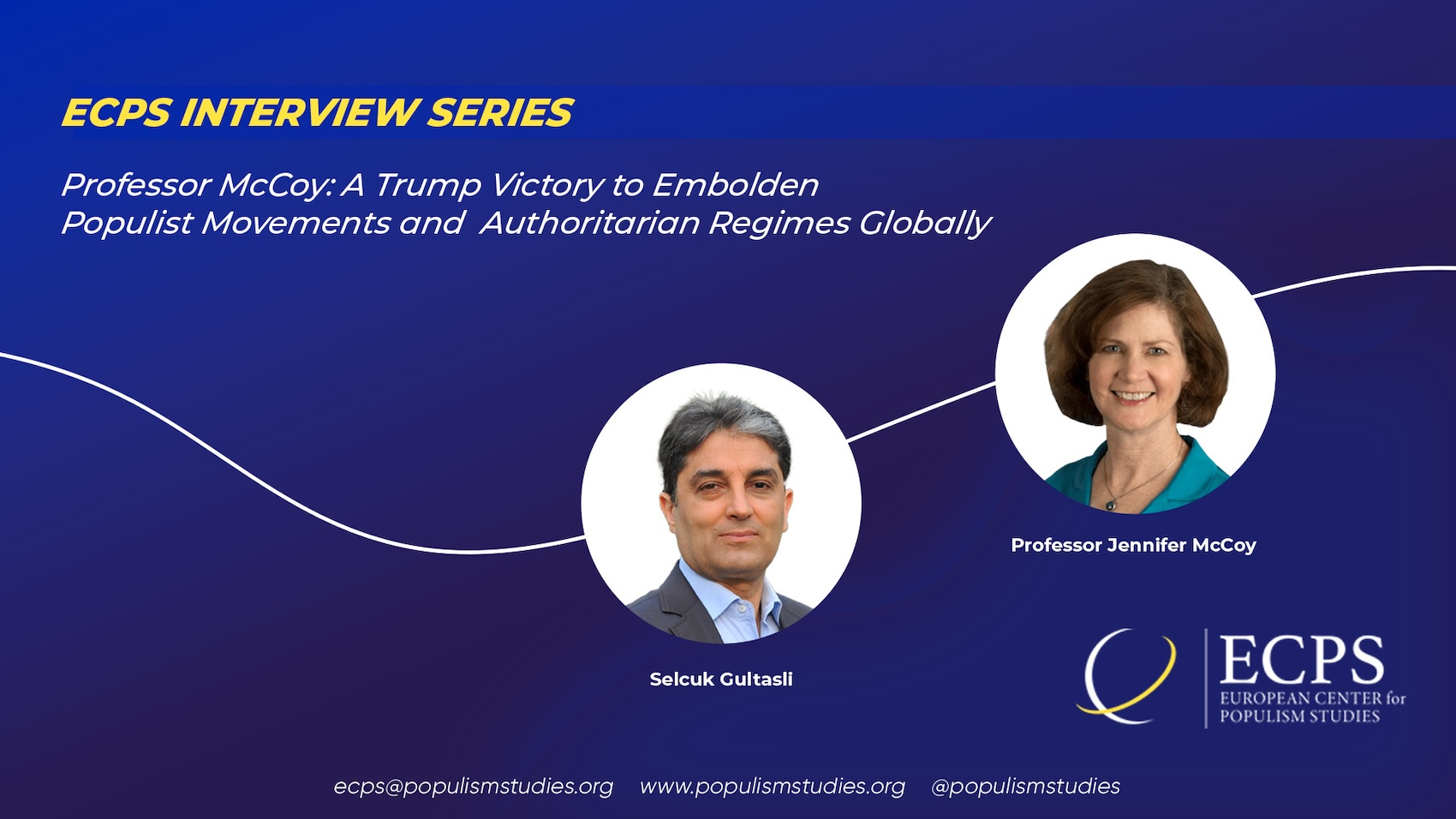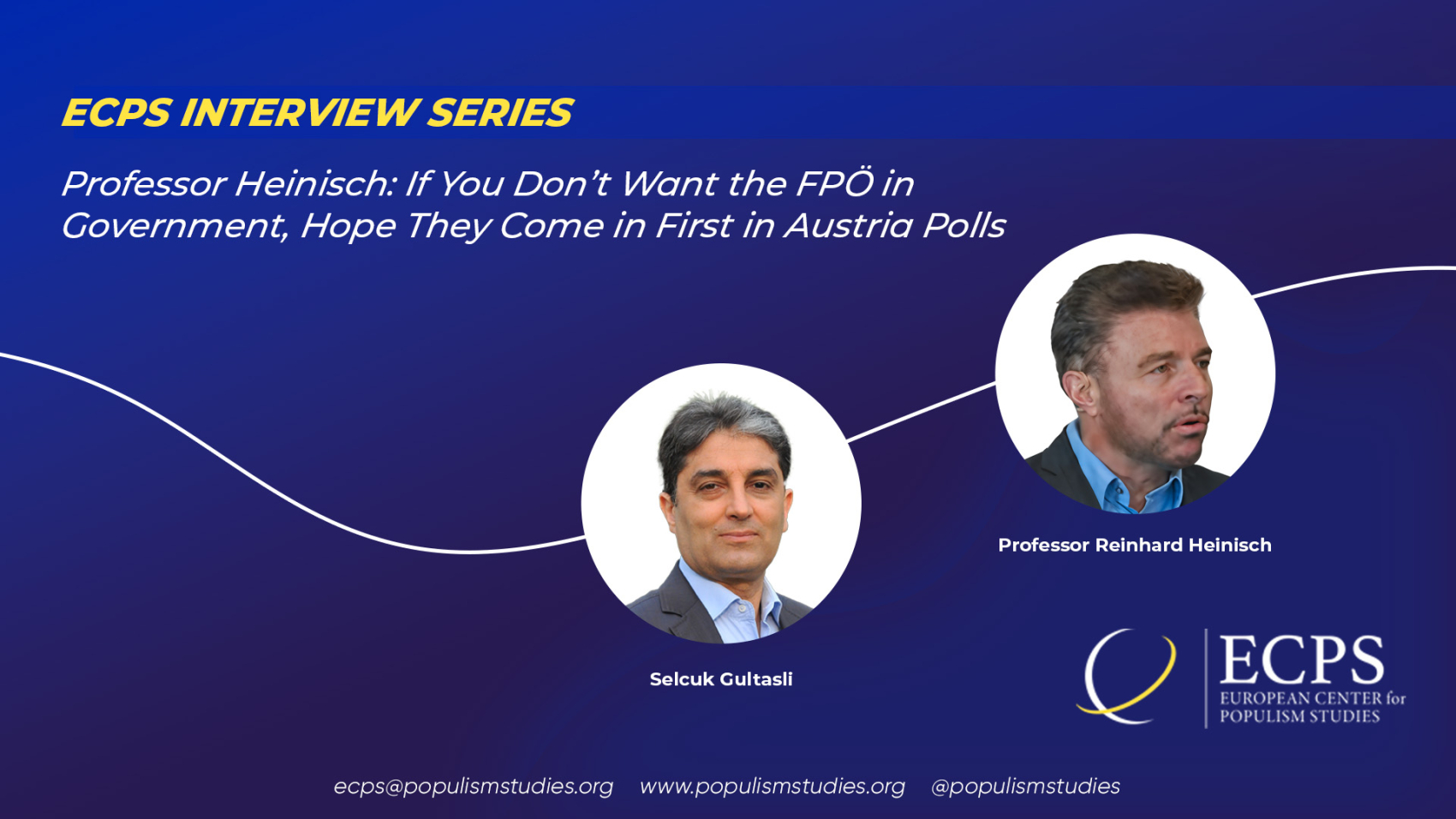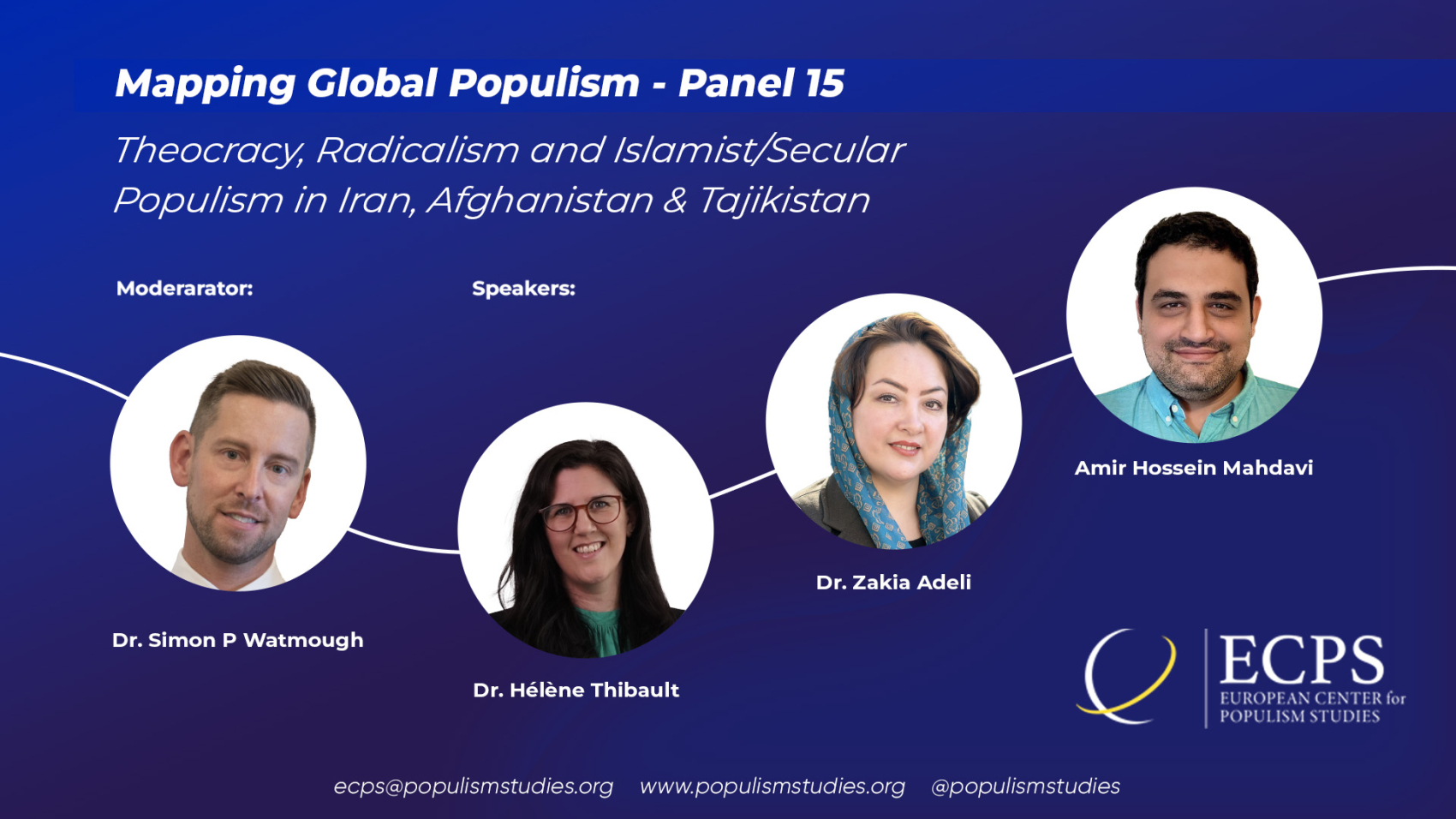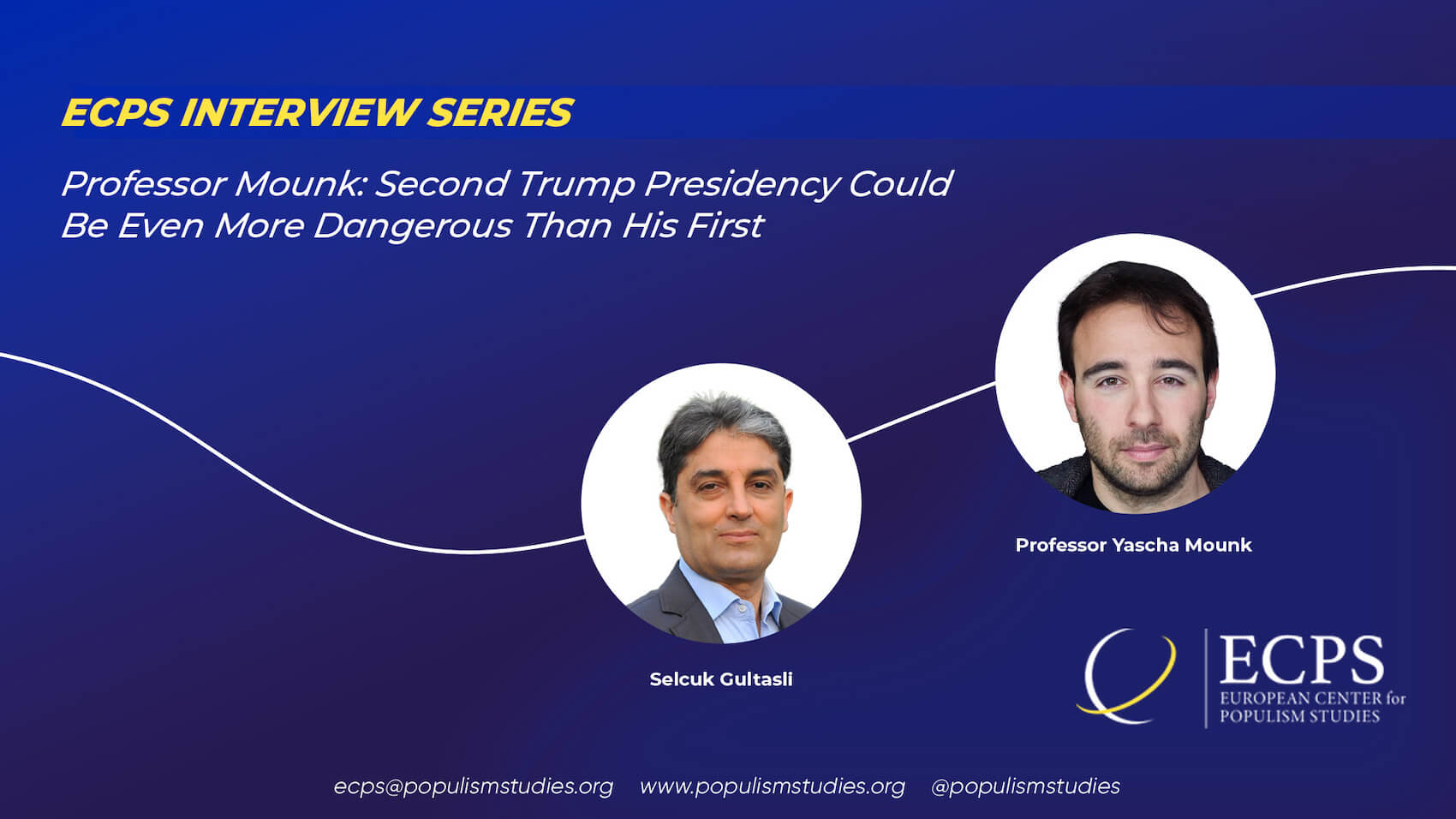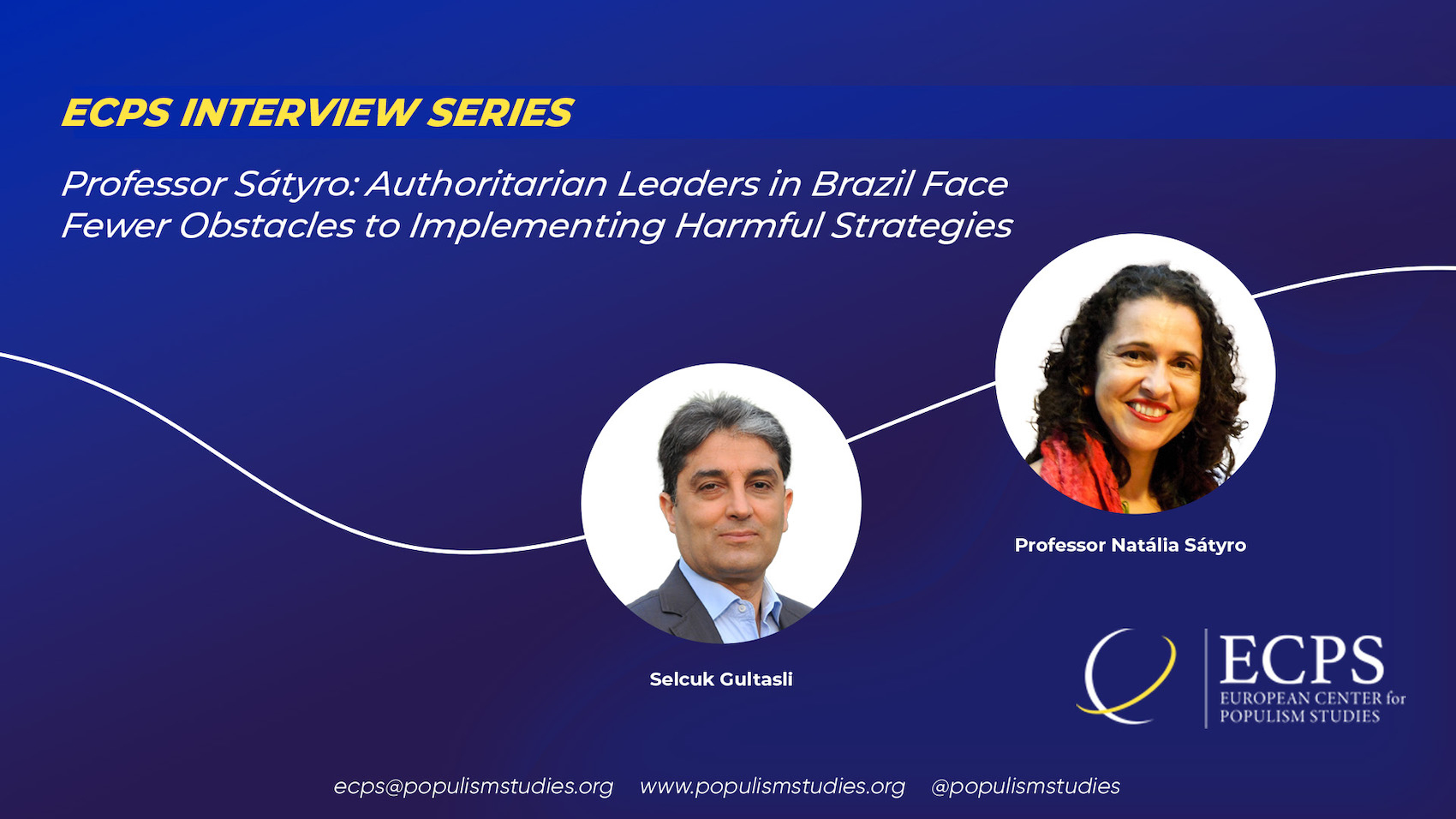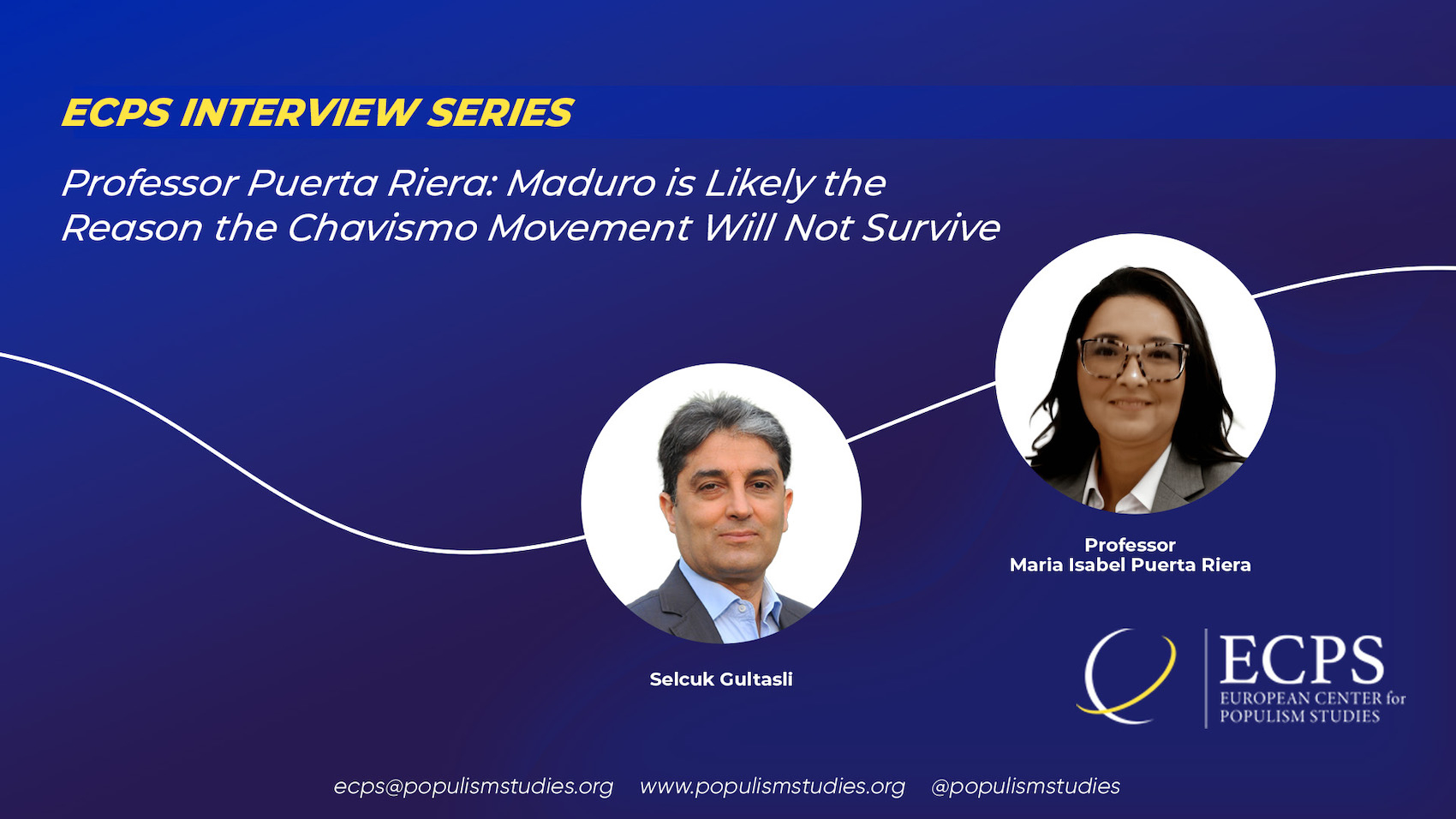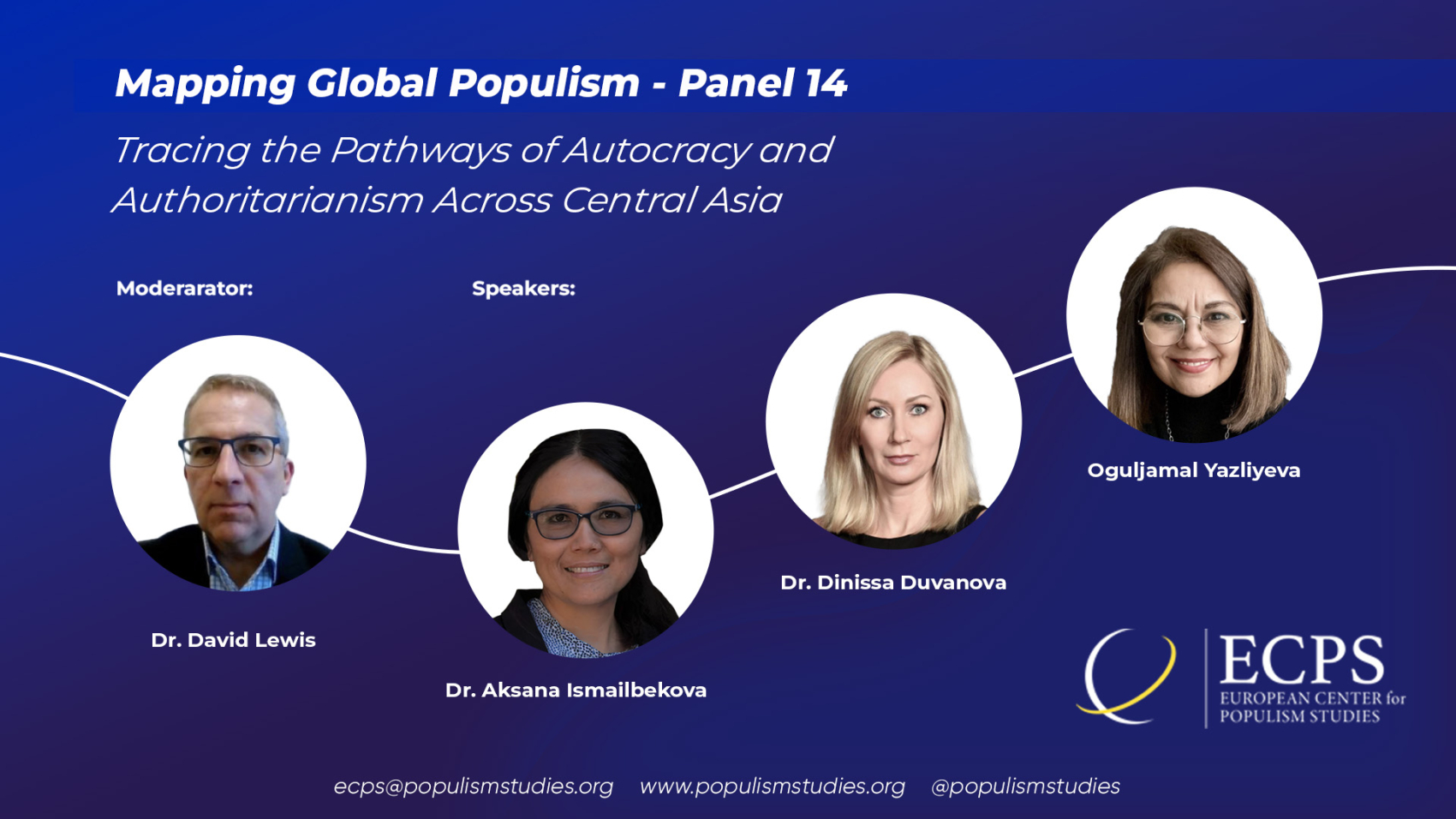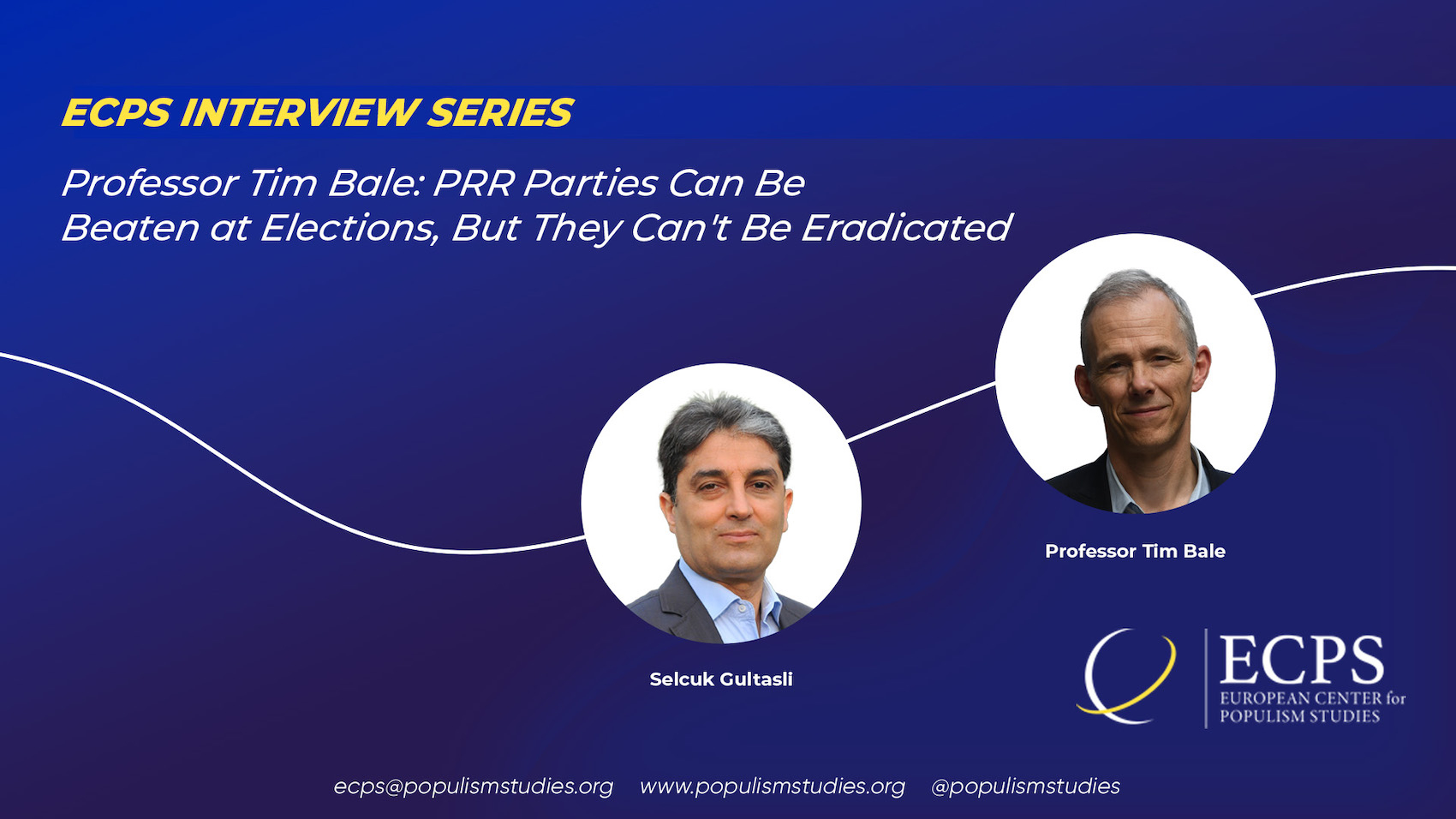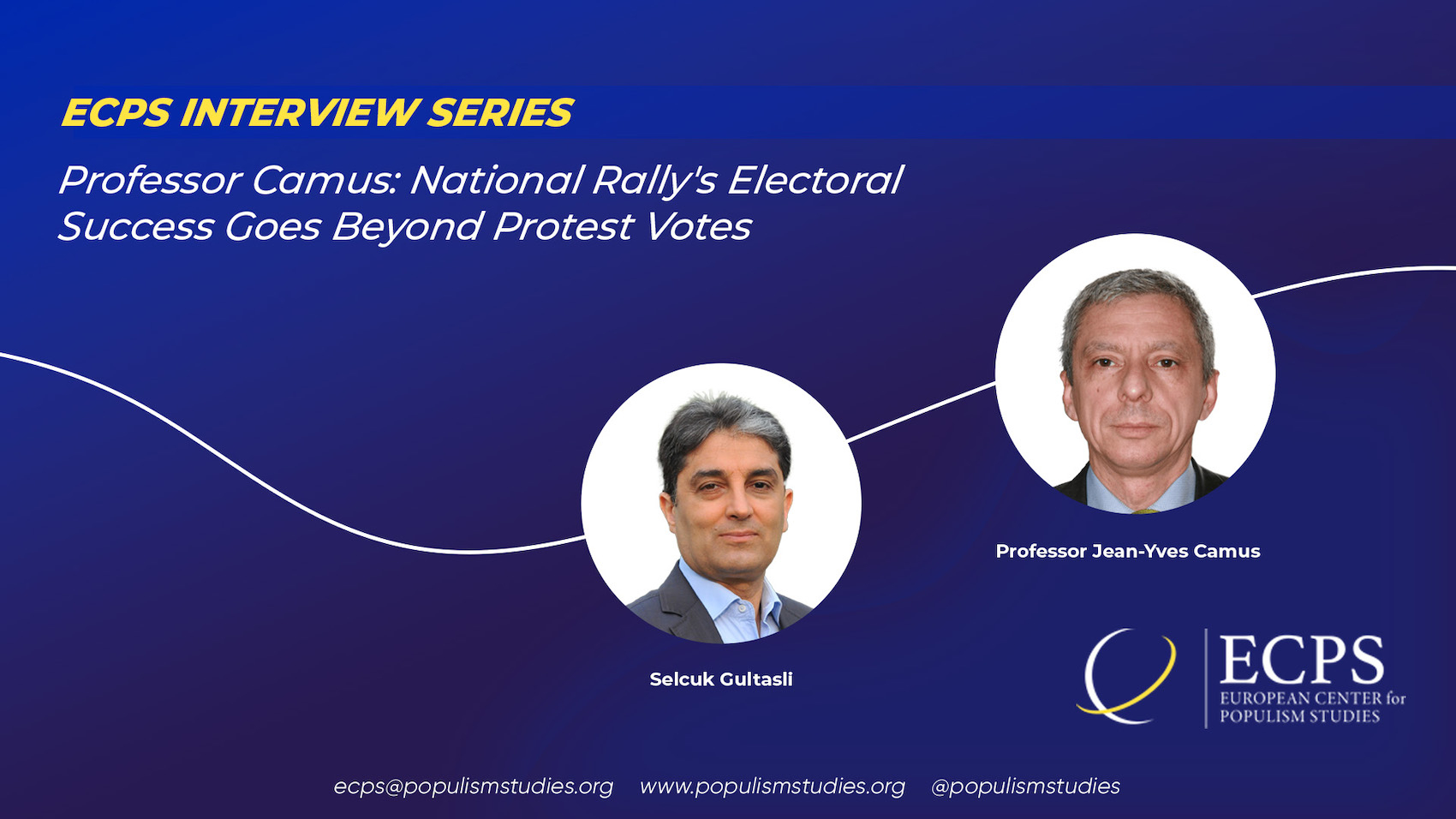In an interview with ECPS, Professor Jennifer McCoy warns that a Donald Trump victory in the November 5th US presidential elections could embolden populist movements and authoritarian regimes worldwide. Professor McCoy asserts that Trump is unlikely to prioritize reinforcing democracy in countries where leaders are consolidating power or undermining democratic norms. “Instead, his victory will empower authoritarian regimes, particularly in countries like Russia and China,” she explained, highlighting the potential global consequences of another Trump term.
Interview by Selcuk Gultasli
In an extensive interview with the European Center for Populism Studies (ECPS), Dr. Jennifer McCoy, Regent’s Professor of Political Science at Georgia State University, predicts that a Trump victory in the November 5th elections will embolden populist movements and authoritarian regimes worldwide. “I think it will embolden populist movements globally because Trump will likely support them,” McCoy stated. She explained that Trump would not prioritize reinforcing democracy in countries where leaders are concentrating power or eroding democratic norms. “Instead, his victory will empower authoritarian regimes, particularly in countries like Russia and China,” McCoy argued, highlighting Trump’s differing stances on global powers.
Professor McCoy, an expert on democratic decline and polarization, also delved into the broader effects of pernicious polarization on democracies. She explained how polarization, especially the extreme form she terms as “pernicious,” divides societies into hostile camps that undermine democratic institutions. “Pernicious polarization involves a perception of threat and a zero-sum mentality, which leads people to cut off communication with those on the other side,” McCoy said. ‘‘This kind of division complicates governance, reduces the capacity for compromise, and fosters deep social and political rifts.’’
Drawing from her research, McCoy emphasized that this destructive form of polarization often leads to a weakening of democratic systems. Historically, the resolution of such polarization has required significant systemic upheavals, such as wars, colonial transitions or authoritarian regime changes. However, McCoy warned that relying on such extreme disruptions today would be detrimental. Instead, she advocates for addressing polarization by restoring the ability of democracies to govern effectively without resorting to such drastic measures.
When asked about the rise of far-right parties in Europe and advanced democracies, Professor McCoy pointed to economic dislocation and political convergence around market-based policies as significant factors. “Globalization was rising and many people felt left behind,” Professor McCoy noted, explaining that traditional parties’ failure to address these concerns opened the door for populist outsiders. These leaders, often using divisive rhetoric, scapegoat marginalized groups—especially immigrants—offering simplistic answers to complex socio-economic issues.
As Professor McCoy sees it, the challenge for democracies lies not just in addressing the root causes of polarization but in mitigating its effects before democratic institutions are irreparably damaged. In her analysis, both electoral reforms and changes in political strategy are essential to restore stability in deeply divided societies.

